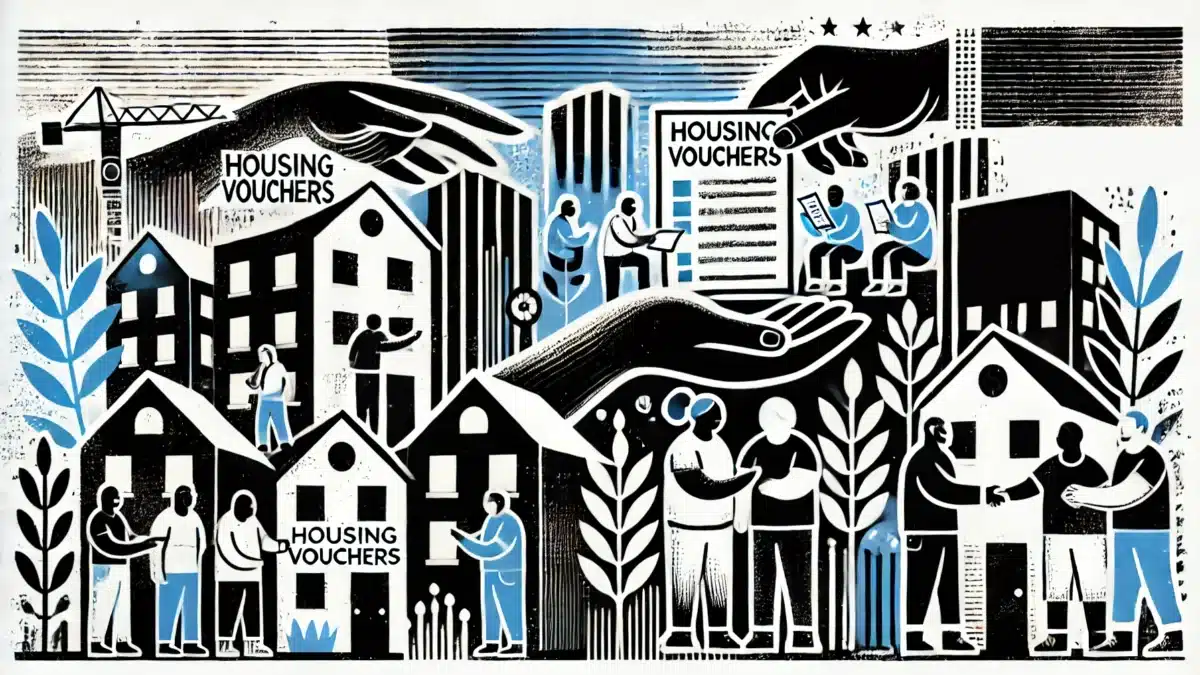
Common Mistakes That Cause People to Lose Their Housing Vouchers
May 1, 2020
Affordable Housing Success Stories: How People Avoided Scams and Found Homes
November 11, 2020Section 8 housing vouchers offer essential financial assistance to low-income families, giving them a chance to afford a place to live. However, about 50% of voucher recipients can’t find housing that accepts the vouchers, leaving them without the help they need.
Understanding the reasons behind this issue is critical if you want to make your voucher work for you. This article breaks down the most common challenges and how to overcome them.
Why Are So Many Housing Vouchers Going Unused?
There are several reasons why so many housing vouchers don’t get used, despite the clear demand for affordable housing. These reasons range from issues with the housing market to voucher program rules. Here are the most common factors:

1. Lack of Available Affordable Housing
The most significant barrier to using a housing voucher is the lack of affordable housing in many areas. Even with a voucher in hand, recipients often find that there are few, if any, rental units that meet the program’s requirements. Many regions face a shortage of landlords willing to participate in the voucher program. Without available housing, it’s impossible to use the voucher, no matter how much assistance is provided.
2. Landlords Not Accepting Vouchers
A big problem is that many landlords refuse to accept Section 8 vouchers. Even though the voucher program guarantees rent payments, some landlords see it as risky or burdensome. Common reasons landlords avoid the program include:
- Additional inspections: Section 8 housing must pass inspections, which some landlords see as a hassle.
- Payment delays: Although the program guarantees rent, landlords sometimes experience delays in receiving payments.
- Program rules: Landlords may be put off by the additional paperwork and rules they have to follow when working with housing authorities.
In some states or cities, laws require landlords to accept housing vouchers, but this isn’t true everywhere. As a result, many voucher holders are left searching for landlords willing to participate in the program.
3. Voucher Expiration Deadlines
When you’re issued a housing voucher, you only have a limited amount of time to use it. The exact length of time varies depending on the housing authority, but it’s often 60 to 120 days. If you can’t find a landlord who accepts vouchers within this time, you lose your opportunity.
The short window makes it difficult for many recipients to find a place that meets their needs, especially in high-demand housing markets where available units are rented quickly. Extensions are possible but not always guaranteed.
4. Limited Knowledge of How the Program Works
For many voucher recipients, the rules and procedures of the housing voucher program can be confusing. If you don’t fully understand how the program works or what steps to take, it can be difficult to use the voucher successfully. Common issues include:
- Not knowing where to look for landlords who accept vouchers.
- Misunderstanding the voucher amount and whether it will cover rent for a particular property.
- Uncertainty about documentation and other requirements landlords need.
Housing authorities often provide some guidance, but the process can still be overwhelming, especially if you’re unfamiliar with the rental market or don’t have strong support from caseworkers.
5. Discrimination
Despite laws that protect against discrimination based on income, housing voucher recipients often face subtle discrimination. Landlords may use excuses such as “the unit is already rented” or “we don’t take government programs” as a way to avoid renting to someone with a voucher. This type of discrimination is illegal in some places, but in many areas, there are no laws that force landlords to accept housing vouchers.
Discrimination doesn’t just apply to whether or not a landlord accepts vouchers; it can also occur based on race, family size, or disability, which further limits housing options.
6. High Demand in Certain Areas
Some cities and regions have an extremely competitive housing market, making it difficult for voucher holders to secure a rental. Landlords in these areas might prefer tenants without vouchers because they can rent their units quickly and for higher prices. In these high-demand areas, even with a voucher, it’s hard to compete with renters who don’t rely on government assistance.
7. Strict Inspection Requirements
The Section 8 program requires that housing units meet specific safety and health standards. While this ensures voucher holders live in safe and decent conditions, it also discourages some landlords. Properties must pass an inspection before a landlord can accept a voucher, and the process of fixing potential issues can be costly and time-consuming.
As a result, many landlords choose to avoid the program altogether, especially if they believe their property might not pass the inspection or if they don’t want to deal with repairs.
What You Can Do to Make Sure You Use Your Voucher

Given these challenges, it’s easy to see why so many people struggle to use their housing vouchers. However, there are ways to improve your chances of successfully finding housing with a voucher.
1. Start Your Search Early
As soon as you receive your voucher, begin searching for housing. Since you only have a limited time before the voucher expires, starting early gives you the best chance of finding a unit that meets both your needs and the program’s requirements. Make sure to:
- Reach out to multiple landlords.
- Use online platforms and local housing authority resources to identify units.
- Be proactive in contacting landlords and scheduling property viewings.
2. Expand Your Search Area
If you’re having trouble finding available housing in your preferred area, consider expanding your search to nearby neighborhoods. Sometimes, looking just outside high-demand areas can open up more options. You may also want to explore areas with lower rents where vouchers may go further, allowing you to afford better-quality housing.
3. Get Help from Housing Authorities
Most housing authorities offer support services to help voucher holders navigate the housing search. Reach out to your caseworker for guidance on available units, landlords who accept vouchers, and help with the application process. Caseworkers can also:
- Assist in requesting an extension if you’re close to your voucher’s expiration date.
- Provide tips on how to approach landlords and present your voucher as a benefit, not a burden.
- Help with paperwork and ensure all your documents are in order.
4. Know Your Rights
Familiarize yourself with local laws regarding housing discrimination. In many states and cities, it’s illegal for landlords to refuse housing vouchers outright. If you suspect a landlord is discriminating against you because of your voucher, you can file a complaint with your local housing authority or civil rights office. Knowing your rights can also help you feel more confident during the housing search process.
5. Work on Building a Strong Rental Application
Landlords want reliable tenants. One way to increase your chances of securing a rental with a voucher is to present a strong rental application. This includes:
- References from previous landlords.
- Proof of income (including your housing voucher).
- A solid rental history that shows you’ve been a responsible tenant.
If you’re new to renting or don’t have a long rental history, you might consider getting a co-signer or providing additional documentation that shows your ability to pay rent reliably.
6. Look for Landlords Who Prefer Long-Term Tenants
Some landlords are more interested in stability than short-term profits. Landlords who want long-term tenants may be more willing to accept vouchers because they offer a reliable source of income over time. When approaching landlords, emphasize that you are looking for a long-term rental and that the voucher program guarantees consistent rent payments, which can be an appealing factor.
7. Seek Legal Aid or Advocacy Groups
If you’re facing significant barriers to using your voucher, consider reaching out to legal aid services or housing advocacy groups. These organizations can help you navigate complex situations, provide advice on how to deal with uncooperative landlords and offer resources for combating discrimination.
Conclusion
The fact that 50% of housing vouchers go unused is troubling, but it highlights the serious challenges that recipients face. Lack of affordable housing, landlord reluctance, and discrimination are just a few of the barriers people encounter when trying to use their vouchers.
If you’re a voucher recipient, there are steps you can take to improve your chances of success. Start your housing search early, expand your search area, and seek support from housing authorities and advocacy groups. With the right approach, you can overcome the obstacles and use your housing voucher to secure stable, affordable housing for you and your family.




